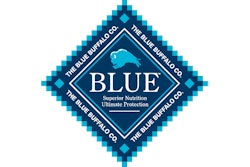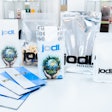
The United States District Court in St. Louis sentenced Wilbur-Ellis Feed and Diversified Ingredients to pay a combined US$7 million fine for their involvement in passing off poultry feathers, heads, bones, feet and entrails as high-quality poultry meal, reported the Associated Press. The mislabeled ingredients were sold to Blue Buffalo and other pet food manufacturers, which led to a lawsuit by Purina against Blue Buffalo over false advertising.
History of charges against Wilbur-Ellis and Diversified Ingredients
On March 6, pet food ingredient supplier Wilbur-Ellis and an employee were charged with eight criminal counts related to their roles in providing allegedly misbranded and adulterated poultry ingredients to Blue Buffalo.
"These misdemeanor charges arise from shipments that allegedly occurred several years ago out of one of our 32 feed division locations around the world," Katherine Fordon, corporate communications manager for Wilbur-Ellis, told Petfood Industry. "At that time, the facility was under prior local management. The company took prompt action to ensure this facility operates according to what our customers, and theirs, should expect. At no time were there any safety concerns with this facility, and nutritional standards were always met.”
On September 27, US District Judge Rodney W. Sippel upheld claims against Diversified Ingredients Inc., the broker that allegedly sold ingredients adulterated with poultry by-product meal to Blue Buffalo. However, the judge reduced some of the claims to compensation made against the broker by pet food ingredient supplier Wilber-Ellis.
Wilbur-Ellis Feed may face three years of probation and may pay nearly US$5.5 million after pleading guilty in April to charges against the company related to mislabeled pet food ingredients sold to Blue Buffalo, reported the Post-Dispatch.
Collin McAtee, co-owner of Ballwin, Missouri-based Diversified Ingredients, also pleaded guilty on May 17, reported the Post-Dispatch. McAtee could face up to one year in prison, but his lawyer plans to ask for probation. In his plea, he revealed that some of the mislabeled ingredient went to co-packers in Kansas, Pennsylvania, Minnesota and Ohio, in addition to Blue Buffalo.
On July 10, Diversified Ingredients pleaded guilty to two misdemeanor counts of adulteration or misbranding of food, reported the Post-Dispatch. The court dropped two additional counts, for which Diversified Ingredients agreed to pay US$1.5 million restitution, a US$75,000 forfeiture judgment, US$2,000 fine and US$250 special assessment. At sentencing, the company may be made to pay out US$5.5 million.
History of Purina and Blue Buffalo legal battles
On May 6, 2014, Purina filed a lawsuit against Blue Buffalo for false advertising of pet food after testing revealed the presence of poultry by-product meal in some of Blue Buffalo’s top-selling pet foods. The false advertising of pet food lawsuits claimed that some Blue Buffalo products were not consistent with the company’s “True Blue Promise,” which stated that the products are “formulated with the finest natural ingredients” and made with “no chicken/poultry by-products meals; no corn, wheat or soy; and no artificial preservatives, colors or flavors.”
Subsequently, Blue Buffalo officially filed a lawsuit against Purina on May 14, 2014. The lawsuit, in response to a lawsuit filed by Purina against Blue Buffalo, claims defamation, unfair competition, false advertising and violations of trade practice statutes.
On May 6, 2015, Blue Buffalo acknowledged in court that a “substantial” and “material” portion of Blue Buffalo pet food sold to consumers contained poultry by-product meal, despite advertising claims to the contrary. Under the terms of the agreement, Blue Buffalo had to pay US$32 million into a settlement fund to settle the claims of the plaintiff class.

















